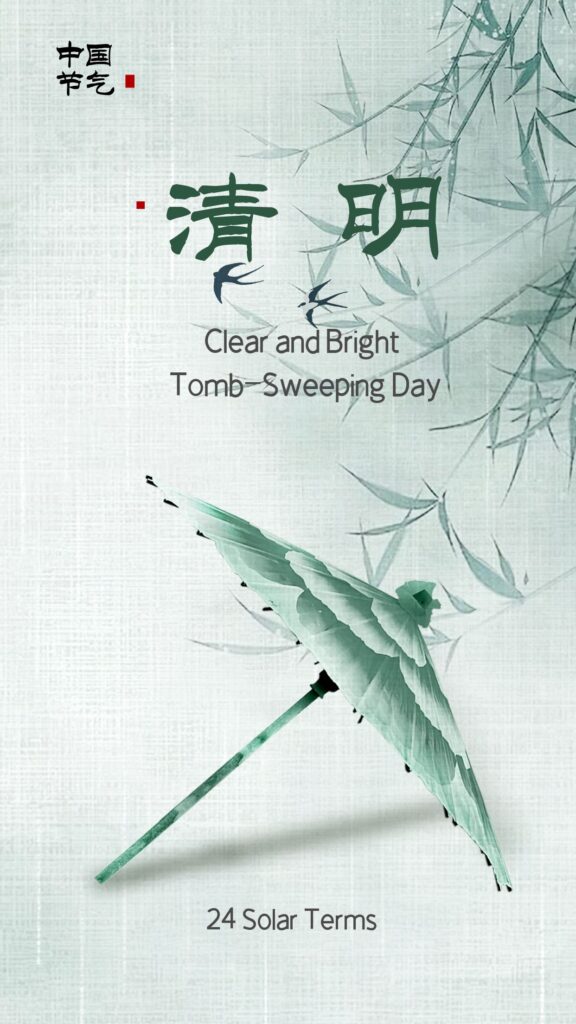
今年4月4日(农历二月廿三)是清明节,也是第五个节气的开始。在中国农历二十四节气中,既是节气又是节日的只有清明。正如其名,清明一到,气温升高,雨量增多,正是春耕春种的大好时节。
April 4 (the 23rd of the second lunar month) marks the arrival of the fifth solar term of this year – Qingming (Clear and Bright). Of all 24 solar terms, Qingming is the only one whose first day is also a traditional Chinese festival, Qingming Festival or Tomb-Sweeping Day. The name “clear” and “bright” describes the weather during this period. Temperatures begin to rise and rainfall increases, making it a crucial time for plowing and sowing in the spring.
话说中国节:清明 Festive China: Qingming / chinadaily
清明将节气日与民俗节日融为一体,是天时与人时的合一,充分体现“天人合一”的传统观念。祭祖与踏青是清明节的两大礼俗主题:在祖先祭祀仪式中慎终追远、敦亲睦族,在踏青郊游中亲近自然、珍重生命。扫墓原是清明节前一天寒食节的内容,而踏青也是农历三月三上巳节的重要活动。自唐代起,清明节上墓祭扫已成风气;宋元时期,清明节成为以祭祖扫墓为中心,融汇寒食与上巳两个节庆习俗的传统节日。
As an occasion integrating solar term and folk festival, Qingming Festival or Tomb-Sweeping Day is an embodiment of the traditional concept of “the unity of man and nature”. Ancestor worshipping and spring outing are two major customs of Qingming Festival: people commemorate the deceased and unite the living by cleaning the tombs and paying respect to the late relatives with offerings; meanwhile, people engage in spring outing activities to be close to nature and cherish life. Spring outing was once a major custom of Shangsi Festival (Double Third Festival); while tomb-sweeping was originally conducted on the day before Qingming Festival, known as Hanshi Festival (Cold Food Festival), and became a part of the customs of Qingming Festival in the Tang dynasty. Since the Song and Yuan dynasties, Qingming Festival has evolved into a traditional festival incorporating a number of practices and customs of both Hanshi Festival and Shangsi Festival.
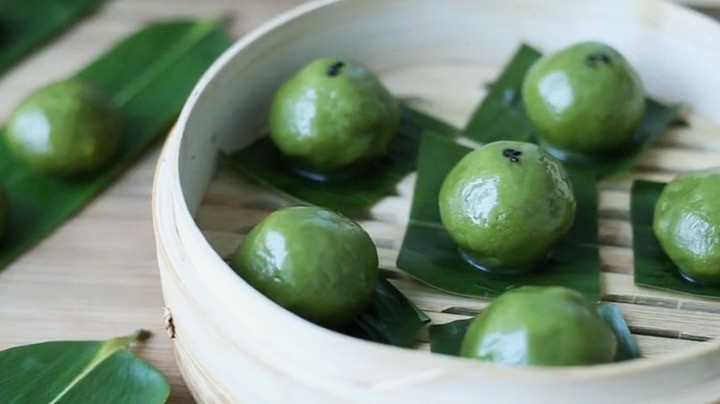
青团 Qingtuan (glutinous rice ball mixed with Chinese mugwort or barley grass)
除了扫墓、踏青,清明也盛行放风筝、插柳戴柳、吃青团等活动,江南还有蚕花会和祭祀蚕神等习俗。因此,清明时节既有祭扫坟墓的悲酸之泪,又有踏青游玩的欢笑之声,是一个富有特色的节日。
Other traditions of Qingming Festival include flying kites, wearing willow garland, hanging willow branches on doors and eating qingtuan (glutinous rice ball mixed with Chinese mugwort or barley grass), etc. Some parts of southern China also preserve the tradition of offering sacrifices to the Goddess of Silkworm and holding Silkworm Flower Temple Fair. Therefore, Qingming Festival is celebrated with tears shed for the deceased and laughter in spring outings.
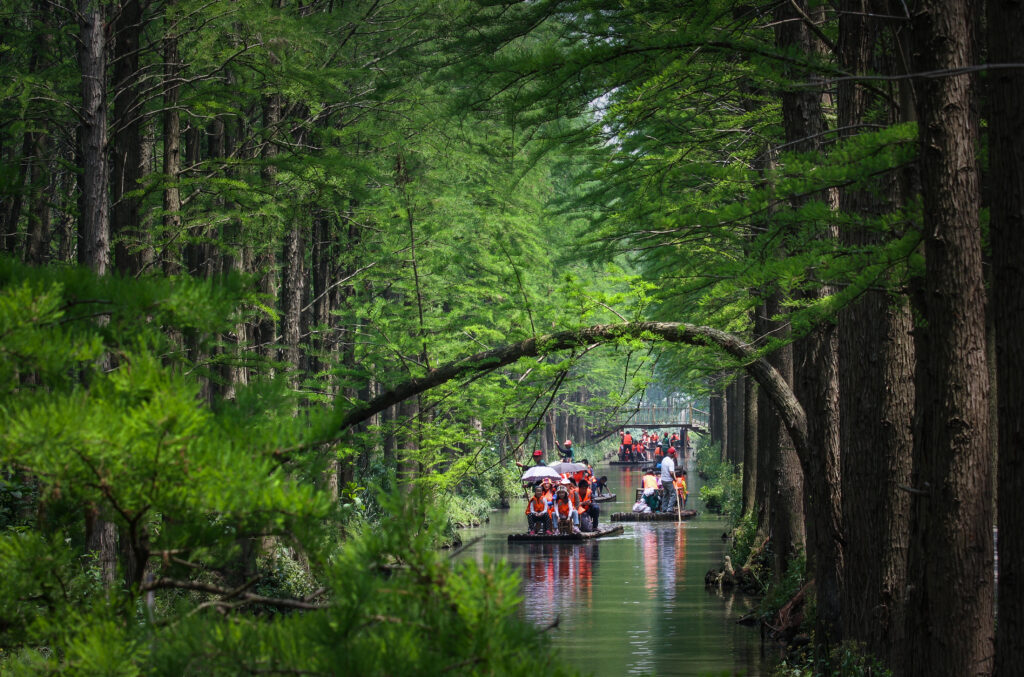
李中水上森林 Lizhong Water Forest Park
-1024x513.jpg)
孤山春色 Spring in Gushan Mountain / 叶江 Ye Jiang
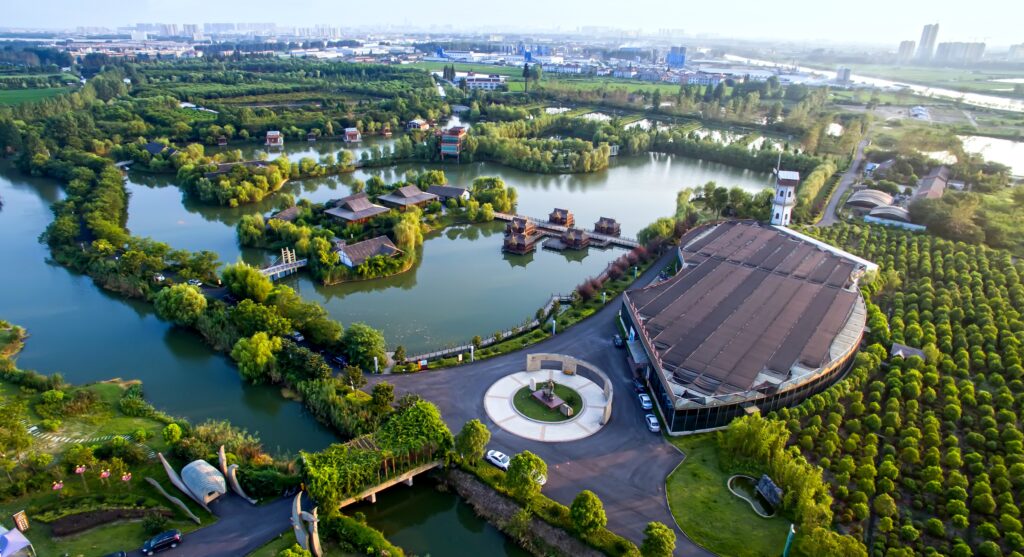
秋雪湖风景区 Qiuxue Lake / 殷凯 Yin Kai
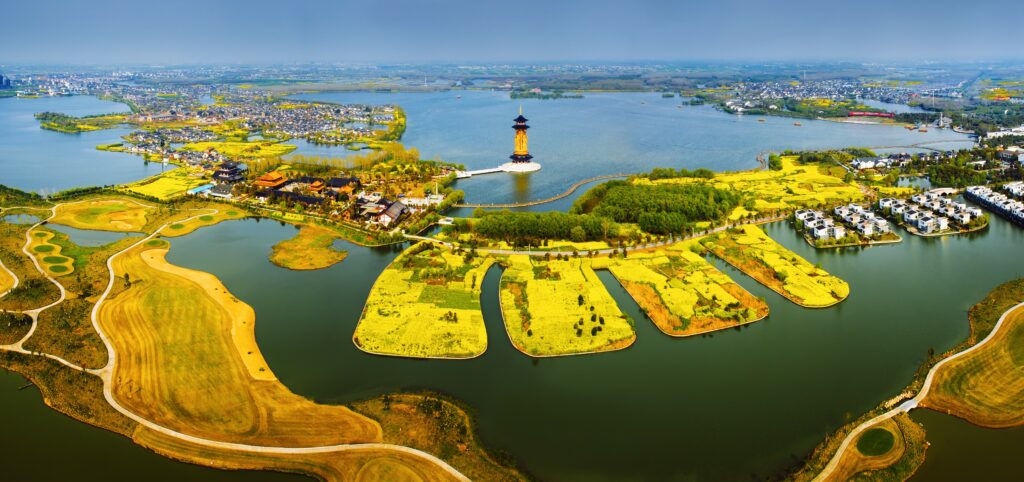
大美溱湖 Qin Lake National Wetland Park
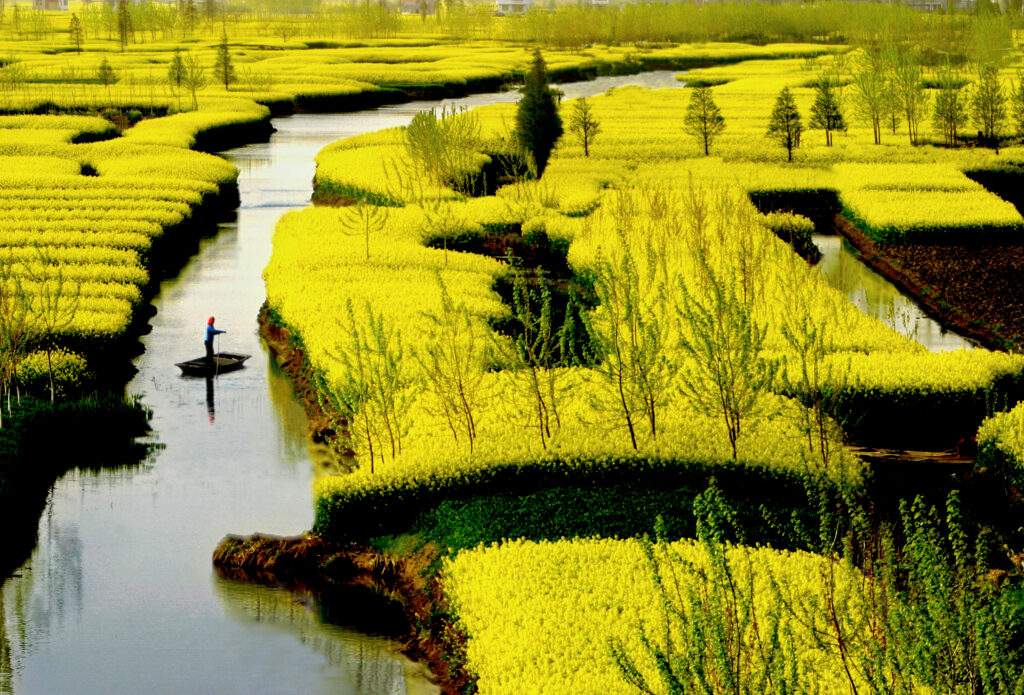
千垛景区 Qianduo (Raised Wetland Fields) Scenic Area
春风拂面杨柳青青,最适宜结伴踏青,也是传统的春祭节日,江苏省兴化市茅山镇,四乡八镇会船盛会,祭奠抗战烈士。
With gentle breeze and sprouting willows, Qingming is the best time for spring outing. It is also the time to worship ancestors and commemorate the deceased. People in Maoshan, Xinghua, Jiangsu province hold Maoshan Boat Fair as their way to celebrate Qingming Festival.
视频由新华社CNC提供
Video provided by China Xinhua News Network Corporation
资料来源 Sources:
http://www.ihchina.cn/
China Daily
中国文化网
江苏省文化和旅游厅
Facebook: China Cultural Center in Stockholm
https://www.facebook.com/China-Cultural-Center-in-Stockholm-110983273921638
Instagram: chinaculturalcenterinstockholm
https://www.instagram.com/chinaculturalcenterinstockholm/
Tik Tok: cccinstockholm
@cccinstockholm
Wechat: 斯德哥尔摩中国文化中心 or scan the QR code below

